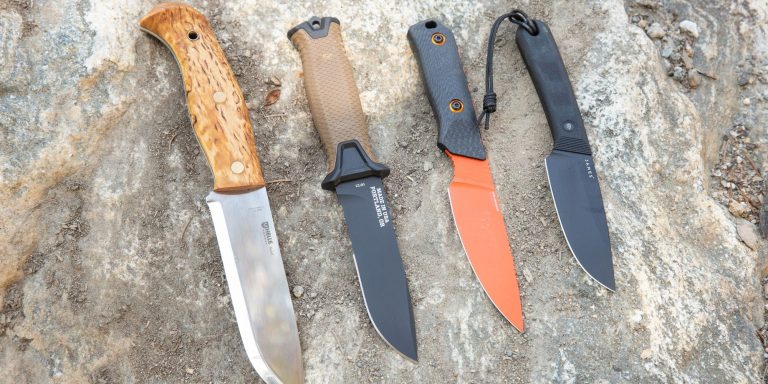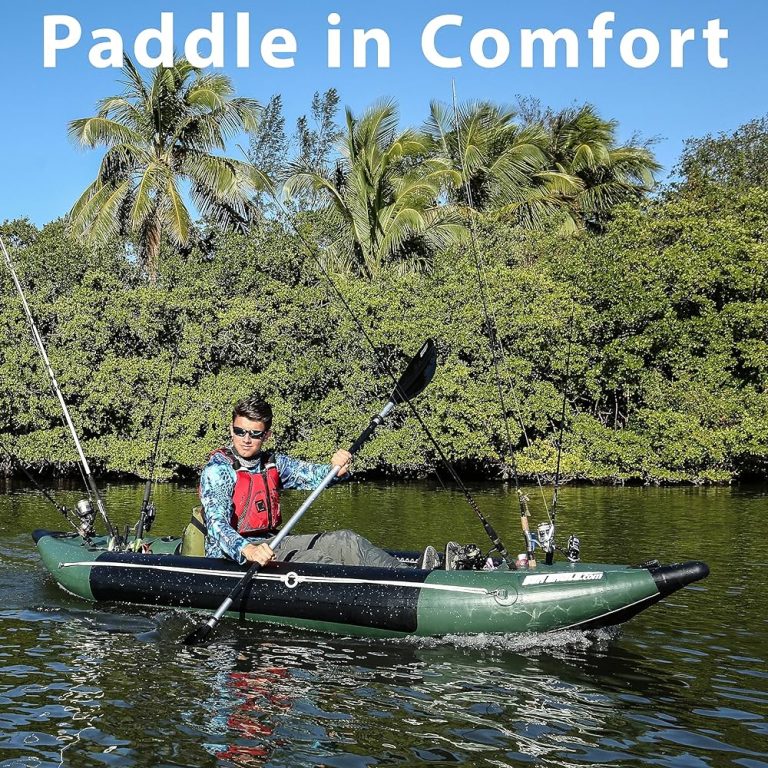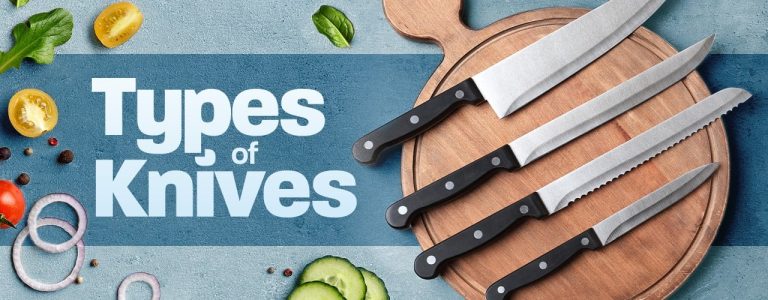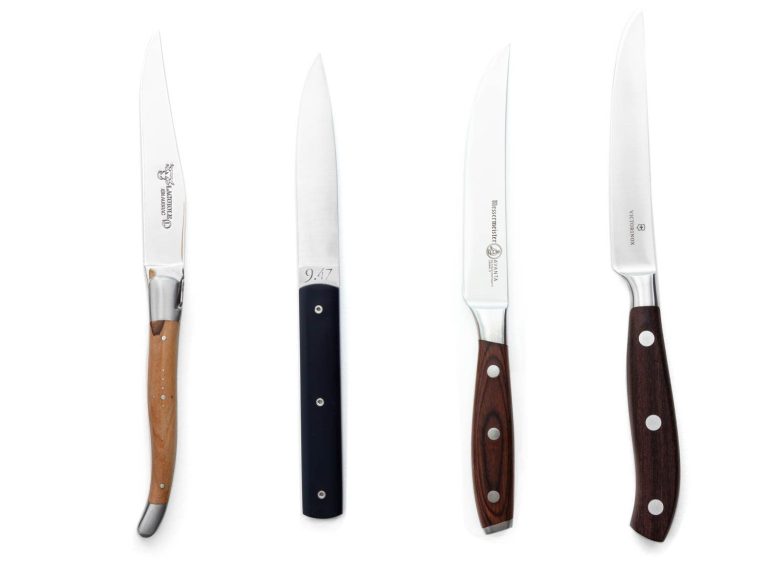Comparing Fixed Blade And Folding Fishing Knives
Comparing fixed blade and folding fishing knives: Fixed blade knives offer greater strength and durability, while folding knives provide convenience and portability. When comparing fixed blade and folding fishing knives, it’s important to consider the specific needs of the angler.
Fixed blade knives are generally stronger and more reliable, making them ideal for heavy-duty tasks such as cutting through tough materials or preparing large catches. On the other hand, folding knives are compact and easy to carry, making them the perfect choice for anglers who prioritize portability and versatility.
Ultimately, the choice between a fixed blade and folding knife will depend on the individual angler’s preferences and fishing requirements.

Credit: www.amazon.com
Factors To Consider When Choosing A Fishing Knife
Choosing a fishing knife involves considering the factors of blade type and design. Fixed blade knives offer durability and strength, while folding knives provide convenience and portability. Evaluate your needs before deciding on the best option for your fishing adventures.
When it comes to finding the perfect fishing knife, there are several factors to consider. Your choice of blade material, blade length, handle material, and knife design can all greatly impact your fishing experience. To help you make an informed decision, let’s take a closer look at each of these factors:
Blade Material
- Stainless steel: Known for its corrosion resistance and durability, stainless steel blades are a popular choice for fishing knives. They require minimal maintenance and can withstand exposure to water and salt.
- Carbon steel: Offering excellent edge retention and ease of sharpening, carbon steel blades are known for their strength and sharpness. However, they require more frequent maintenance to prevent rusting.
- Titanium: Lightweight and resistant to corrosion, titanium blades are an excellent choice for anglers looking for a durable and low-maintenance option.
- Ceramic: Renowned for their extreme sharpness, ceramic blades have excellent edge retention and are resistant to rust. However, they are more prone to breakage if not handled with care.
Blade Length
- Short blades (less than 3 inches): Ideal for detail work such as cleaning fish, short blades offer better precision and control.
- Medium blades (3 to 6 inches): Versatile and popular among anglers, medium blades are suitable for a wide range of fishing tasks.
- Long blades (more than 6 inches): Long blades are great for filleting larger fish and offer more cutting surface area. However, they require skill and practice to handle properly.
Handle Material
- Wood: Known for its natural beauty and comfortable grip, wood handles provide a classic and traditional look. However, they require regular maintenance to prevent cracking and warping.
- Rubber: Offering excellent grip even when wet, rubber handles provide anglers with a secure hold. They are also durable and easy to clean.
- Synthetic Materials: Handles made from materials like nylon, G10, or fiberglass-reinforced polymers offer durability, moisture resistance, and a variety of grip textures.
- Stainless Steel: Some fishing knives have handles made from the same stainless steel as the blade. While they offer a cohesive look, they may lack the grip provided by other handle materials.
Knife Design
- Fixed blade knives: These knives have a strong, solid construction and do not fold. They are sturdy and reliable, making them suitable for heavy-duty tasks and applications.
- Folding knives: Designed with a hinge mechanism, folding knives are compact and portable. They offer convenience and safety, with the blade folding into the handle when not in use.
Considering these factors will help you choose a fishing knife that fits your specific needs and preferences. Remember to prioritize your comfort, durability, and the type of fishing you most frequently engage in. Happy fishing!
Advantages Of Fixed Blade Fishing Knives
Fixed blade fishing knives have several advantages over folding knives. They offer superior strength, durability, and stability, making them perfect for more demanding fishing tasks. With their solid construction, fixed blade knives are the optimal choice for serious anglers.
Fixed blade fishing knives offer a range of advantages that make them a popular choice among anglers. Designed for strength, control, and ease of maintenance, these knives are essential tools for any fishing enthusiast. Let’s take a closer look at the benefits they provide:
- Enhanced Strength and Durability: Fixed blade fishing knives are renowned for their robustness and durability. Unlike folding knives, they have a solid construction that eliminates weak points like hinges or locks. This sturdiness allows them to handle tough fish species or perform heavy-duty tasks without the risk of breakage or malfunction. Additionally, their full tang design (where the blade extends through the handle) ensures greater strength and stability, making them reliable companions for challenging fishing adventures.
- Better Control and Maneuverability: Another advantage of fixed blade fishing knives is the superior control they offer. The absence of moving parts means these knives provide a more secure grip, allowing anglers to exert precise force when making cuts or filleting fish. This enhanced control proves beneficial when dealing with slippery fish or when executing intricate filleting techniques. Furthermore, their fixed blade design enables easier maneuverability in tight spaces or when working in adverse weather conditions.
- Easier Maintenance and Cleaning: Fixed blade fishing knives are a breeze to maintain and clean. The absence of hinges or locks simplifies the task, as there are no hidden crevices where dirt and grime can accumulate. They can be easily rinsed and wiped clean after use, ensuring optimal hygiene and preventing any potential odors. Moreover, their straightforward design does away with the need for intricate mechanisms that can be challenging to clean and maintain in folding knives.
The advantages of fixed blade fishing knives are clear: enhanced strength and durability, better control and maneuverability, and easier maintenance and cleaning. Anglers who prioritize these qualities will find that fixed blade knives are the optimal choice for their fishing expeditions.
So, whether you’re battling powerful fish or delicately filleting your catch, a fixed blade fishing knife will prove to be a reliable and efficient tool by your side.
Advantages Of Folding Fishing Knives
Folding fishing knives offer the advantage of compactness and portability compared to fixed blade knives. They are convenient to carry and can easily fit in your tackle box, making them a practical choice for anglers on the go. Their folding design also ensures safety when not in use.
When it comes to choosing the right fishing knife, you may find yourself weighing the pros and cons of fixed blade knives versus folding knives. Both types offer their own benefits, but in this section, we’ll focus on the advantages of folding fishing knives.
Portability and Ease of Carry:
- Folding fishing knives are highly portable due to their compact size and foldable design.
- These knives often come with a pocket clip, allowing you to easily attach them to your gear or clothing for quick and convenient access.
- Their lightweight nature makes them ideal for anglers who prefer to travel light and need a versatile tool that won’t weigh them down during their fishing adventures.
Safety and Versatility:
- Folding fishing knives feature a folding mechanism that securely locks the blade in place, reducing the risk of accidental cuts or injuries.
- The ability to fold the blade also makes storage safer by minimizing the chances of it being exposed when not in use.
- The versatility of folding fishing knives is unmatched. With various blade styles and features available, such as serrated edges, gut hooks, and integrated tools like bottle openers or line cutters, these knives can handle a wide range of tasks beyond just fishing.
Convenient Storage:
- One of the primary advantages of folding fishing knives is their convenient storage options. The folding mechanism allows them to be compactly stowed away in tackle boxes, backpacks, or pockets without the need for additional sheaths or cases.
- This feature ensures that your knife is always protected from damage and easily accessible when you need it the most.
Folding fishing knives provide anglers with a range of advantages. Their portability, ease of carry, safety features, versatility, and convenient storage options make them a popular choice among fishing enthusiasts. Whether you’re an avid angler on the go or simply prefer a compact and versatile tool, a folding fishing knife might be the ideal option for you.
So, next time you head out for a day on the water, don’t forget to pack your trusty folding fishing knife.
Comparison Of Performance Between Fixed Blade And Folding Fishing Knives
When comparing fixed blade and folding fishing knives, it is important to consider their performance. Fixed blade knives provide a sturdier and more reliable option, while folding knives offer convenience and portability. Choose the option that best suits your needs for a successful fishing trip.
Fishing knives are essential tools for anglers, providing them with the ability to clean and fillet their catch with ease. When it comes to choosing a fishing knife, two popular options are fixed blade knives and folding knives. Each type has its own unique features and advantages.
In this section, we will compare the performance of fixed blade and folding fishing knives in terms of cutting ability, precision and accuracy, and resistance to corrosion.
Cutting Ability
- Fixed Blade Knives:
- Designed with a full tang construction, fixed blade knives offer superior strength and stability.
- The absence of moving parts ensures a more robust cutting edge, allowing for efficient cuts through tough fish skin and bones.
- Fixed blade knives are usually available in larger sizes, making them suitable for processing larger fish.
- Folding Knives:
- Folding knives employ a pivot mechanism that allows the blade to fold into the handle for compact storage.
- Although not as robust as fixed blade knives, folding knives can still provide adequate cutting ability for smaller fish and general tasks.
- Ideal for anglers who prioritize convenience and portability.
Precision And Accuracy
- Fixed Blade Knives:
- With their solid construction and lack of movable parts, fixed blade knives offer excellent stability, resulting in enhanced precision and accuracy while filleting.
- The absence of blade play improves control, allowing anglers to make precise cuts with ease.
- These knives are especially suitable for anglers who require fine cuts and intricate filleting tasks.
- Folding Knives:
- While folding knives may not provide the same level of stability as fixed blade knives, they still offer sufficient precision and accuracy for most fishing applications.
- Compact and easy to maneuver, folding knives are suitable for anglers who value versatility and convenience over maximum precision.
- They are particularly useful for anglers who engage in various outdoor activities in addition to fishing.
Resistance To Corrosion
- Fixed Blade Knives:
- Fixed blade knives, especially those made with high-quality stainless steel or corrosion-resistant alloys, exhibit excellent corrosion resistance.
- The absence of folding mechanisms eliminates potential areas where moisture and saltwater can accumulate, reducing the risk of corrosion.
- These knives are highly recommended for saltwater fishing as they can withstand the corrosive effects of prolonged exposure to saltwater.
- Folding Knives:
- Folding knives, although generally less resistant to corrosion compared to fixed blade knives, can still offer satisfactory corrosion resistance with proper maintenance.
- The folding mechanism introduces additional areas where moisture can accumulate, increasing the possibility of corrosion.
- Regular cleaning, drying, and lubricating of the folding mechanism are essential to minimize the risk of corrosion.
While both fixed blade and folding fishing knives have their unique advantages, the choice ultimately depends on an angler’s specific needs and preferences. Anglers seeking maximum cutting ability, precision, and corrosion resistance may find fixed blade knives more suitable. On the other hand, those prioritizing convenience, portability, and versatility may opt for folding knives.
Regardless of the chosen type, proper maintenance and care are crucial to ensure the longevity and performance of any fishing knife.
Use Cases For Fixed Blade And Folding Fishing Knives
Comparing fixed blade and folding fishing knives reveals how each has unique use cases. Fixed blade knives offer durability and strength, ideal for heavy-duty tasks like gutting and filleting, while folding knives offer portability and convenience for everyday fishing needs.
Choose the right knife based on your specific fishing requirements.
Freshwater Fishing
- Freshwater fishing involves fishing in lakes, rivers, ponds, or other bodies of freshwater. It is a popular activity for anglers of all skill levels. Here are some use cases for fixed blade and folding fishing knives in freshwater fishing:
- Cutting and cleaning fish: Both fixed blade and folding fishing knives are essential for cutting and cleaning fish. They allow anglers to prepare their catch quickly and efficiently.
- Clearing vegetation: Fishing in freshwater often requires clearing vegetation, such as weeds or branches, to create a clear fishing spot. Fixed blade knives are particularly useful for cutting through thick vegetation.
- Emergency situations: Fishing in remote areas can sometimes lead to unexpected emergencies. In such cases, a fixed blade knife can come in handy for various purposes, including building shelters or cutting ropes.
- Versatility: Folding fishing knives are known for their compactness and versatility. They can be easily carried in a pocket or tackle box, making them convenient for on-the-go anglers.
Saltwater Fishing
- Saltwater fishing is typically done in oceans, seas, or other saltwater bodies. It offers a unique fishing experience and often involves targeting larger and more powerful fish species. Here are some use cases for fixed blade and folding fishing knives in saltwater fishing:
- Filleting big fish: Saltwater fishing often involves catching larger fish that require precise filleting. Fixed blade knives are perfect for this task due to their sturdiness and sharpness.
- Cutting through tough materials: Saltwater fishing gear, such as nets or lines, can get tangled or caught in debris. In such situations, a fixed blade knife can be used to cut through tough materials and free the gear.
- Saltwater corrosion resistance: Saltwater can cause corrosion, which can damage fishing equipment, including knives. Choosing a fixed blade or folding knife specifically designed for saltwater use ensures better corrosion resistance.
- Safety tool: Saltwater fishing can be physically demanding, and anglers may encounter situations where a knife can be used as a safety tool, such as cutting lines or ropes in emergency situations.
Kayak Fishing
- Kayak fishing combines the excitement of fishing with the thrill of kayaking. It offers anglers the opportunity to access more remote fishing spots. Here are some use cases for fixed blade and folding fishing knives in kayak fishing:
- Compactness: When kayak fishing, space is often limited. Folding fishing knives are a popular choice for kayak anglers due to their compact size, easy storage, and accessibility.
- Safety and emergencies: Kayak fishing carries its own set of risks, including capsizing or getting tangled in fishing lines. A reliable knife, whether fixed blade or folding, can serve as a safety tool in case of emergencies.
- Cutting lines and rigging: Anglers frequently need to cut lines and adjust fishing rigs while kayak fishing. Both fixed blade and folding fishing knives provide the necessary cutting capability for these tasks.
- Lightweight and maneuverability: Kayak fishing requires lightweight gear for ease of maneuverability. Folding fishing knives, made with lightweight materials, are ideal for kayak anglers seeking minimalistic gear.
Whether you’re fishing in freshwater, saltwater, or from a kayak, having a reliable fishing knife is crucial. Consider your specific use cases and choose the knife that best suits your fishing needs.
Maintenance Tips For Fishing Knives
For fishing enthusiasts, maintenance tips for fishing knives are essential. When comparing fixed blade and folding fishing knives, it’s important to consider factors such as durability, convenience, and ease of maintenance to choose the right one for your needs.
Cleaning and Drying:
- After every fishing trip, ensure to clean your fixed blade or folding fishing knife thoroughly to prevent any rust or corrosion.
- Use mild soap and warm water to clean the knife, making sure to remove any dirt, debris, or fish scales.
- Avoid using abrasive cleaning agents or rough scrub brushes as they can damage the knife’s blade.
- Rinse the knife thoroughly and pat it dry with a clean cloth to prevent any moisture from causing rust.
Sharpening Techniques:
- Regular sharpening is essential to maintain the cutting edge of your fishing knife.
- Use a sharpening stone or a diamond-coated sharpening tool to sharpen the blade.
- Hold the knife at a 20-degree angle against the sharpening surface and apply steady pressure while making smooth strokes in one direction.
- Repeat the process on both sides of the blade to ensure an even sharpness.
- Remember to test the sharpness by gently running your thumb along the blade’s edge, being cautious not to cut yourself.
Storage Recommendations:
- To preserve the longevity of your fishing knife, proper storage is crucial.
- After cleaning and drying the knife, apply a thin layer of oil to the blade to prevent rust during storage.
- Consider using a knife sheath or blade guard to protect the knife and prevent accidental cuts when not in use.
- Store your fishing knife in a cool, dry place away from moisture, extreme temperatures, and direct sunlight.
- Ensure that the knife is not exposed to any corrosive substances or chemicals that could damage the blade.
By following these maintenance tips for your fishing knives, you can ensure that they remain in excellent condition and provide reliable performance during your fishing adventures. Remember, regular cleaning, proper sharpening techniques, and appropriate storage will help extend the lifespan of your fishing knife and keep it ready for action whenever you need it.
Frequently Asked Questions Of Comparing Fixed Blade And Folding Fishing Knives
Are Fixed Blade Knives Better Than Folding Knives?
Fixed blade knives are generally considered better than folding knives due to their increased strength, durability, and versatility.
What Type Of Knife Is Best For Fishing?
The best knife for fishing is a fillet knife. It is specifically designed for cleaning and preparing fish.
Why Are Fixed Blade Knives Better?
Fixed blade knives are better because they offer increased durability, reliability, and versatility for various tasks.
What Knives Do Commercial Fishermen Use?
Commercial fishermen commonly use fillet knives, boning knives, and serrated knives for their daily tasks.
Conclusion
Choosing between a fixed blade and a folding fishing knife ultimately depends on personal preference and specific fishing needs. Fixed blades offer maximum strength, durability, and reliability, making them ideal for heavy-duty tasks and fishing in challenging environments. They provide a firm grip and are easy to clean and maintain.
On the other hand, folding knives are more portable, compact, and versatile. They can be easily carried in your pocket or tackle box, making them convenient for anglers on the go. Folding knives often have additional features like built-in tools or serrated edges, adding extra functionality.
It’s important to consider factors such as the type of fishing you do, your skill level, and your comfort and safety when making your choice. Ultimately, finding the right fishing knife will enhance your fishing experience and make your outdoor adventures more enjoyable.






